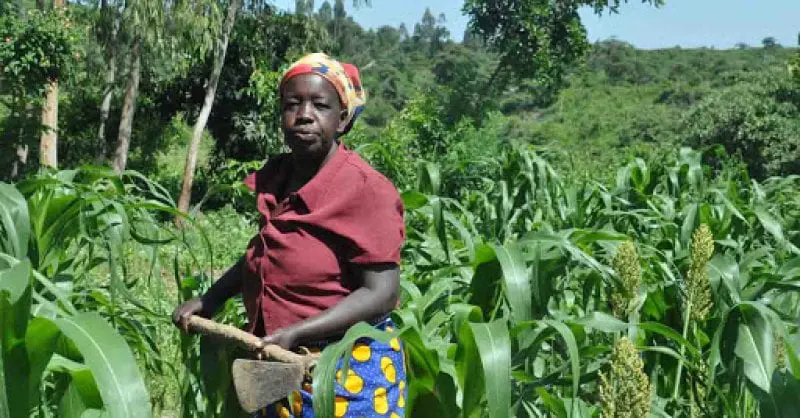Kenya approves 6 gene-edited crops as it pursues food security, sustainable farming
Kenya approves 6 gene-edited crops as it pursues food security, sustainable farming


[A]t the Kenya Agricultural Livestock Research Organisation (Karlo) and the International Institute of Tropical Agriculture (IITA) biotechnologists are using gene editing to develop maize that is resistant to maize lethal necrosis (MLN) and banana varieties to fusarium wilt and banana streak virus.
Other ongoing gene editing researches in the country are focused on making pigs resistant to African swine fever and yams to plant viruses.
The scientists are using CRISPR/Cas9, a new gene editing tool that is popular for is simplicity and efficiency.
Gene editing with the CRISPR/Cas9 tool and other techniques has the potential to make hardier and more nutritious crops – as well as offering drug companies new ways to fight human disease.
The National Biosafety Authority (NBA), the biotech regulating agency in the country says it has so far received and approved six applications on gene editing.
With global population rapidly growing, contemporary agriculture will face enormous challenges, requiring crops with higher yields and of improved quality, and needing fewer inputs.
As a new technology, genome editing was still in its early stages of discovery when Kenya enacted its biosafety regulations in 2011, hence genome editing scientists in the country were being regulated by GMO guidelines.
Kenya has, however began developing its own guidelines for gene-editing regulations, using Argentina’s model as a procedure.
Read the original post

 | Videos | More... |

Video: Nuclear energy will destroy us? Global warming is an existential threat? Chemicals are massacring bees? Donate to the Green Industrial Complex!
 | Bees & Pollinators | More... |

GLP podcast: Science journalism is a mess. Here’s how to fix it

Mosquito massacre: Can we safely tackle malaria with a CRISPR gene drive?

Are we facing an ‘Insect Apocalypse’ caused by ‘intensive, industrial’ farming and agricultural chemicals? The media say yes; Science says ‘no’
 | Infographics | More... |

Infographic: Global regulatory and health research agencies on whether glyphosate causes cancer
 | GMO FAQs | More... |

Why is there controversy over GMO foods but not GMO drugs?

How are GMOs labeled around the world?

How does genetic engineering differ from conventional breeding?
 | GLP Profiles | More... |

Alex Jones: Right-wing conspiracy theorist stokes fear of GMOs, pesticides to sell ‘health supplements’




 Trust issues: What happens when therapists use ChatGPT?
Trust issues: What happens when therapists use ChatGPT? Fighting deforestation with CO2: Biotechnology breakthrough creates sustainable palm oil alternative for cosmetics
Fighting deforestation with CO2: Biotechnology breakthrough creates sustainable palm oil alternative for cosmetics California, Washington, Oregon forge immunization alliance to safeguard vaccine access against federal undermining
California, Washington, Oregon forge immunization alliance to safeguard vaccine access against federal undermining Viewpoint — Fact checking MAHA mythmakers: How wellness influencers and RFK, Jr. undermine American science and health
Viewpoint — Fact checking MAHA mythmakers: How wellness influencers and RFK, Jr. undermine American science and health 30-year-old tomato line shows genetic resistance to devastating virus
30-year-old tomato line shows genetic resistance to devastating virus Viewpoint: Video — Big Solar is gobbling up productive agricultural land and hurting farmers yet providing little energy or sustainabilty gains
Viewpoint: Video — Big Solar is gobbling up productive agricultural land and hurting farmers yet providing little energy or sustainabilty gains The free-range chicken dilemma: Better for birds, but with substantial costs
The free-range chicken dilemma: Better for birds, but with substantial costs ‘You have to treat the brain first’: Rethinking chronic pain with Sanjay Gupta
‘You have to treat the brain first’: Rethinking chronic pain with Sanjay Gupta
